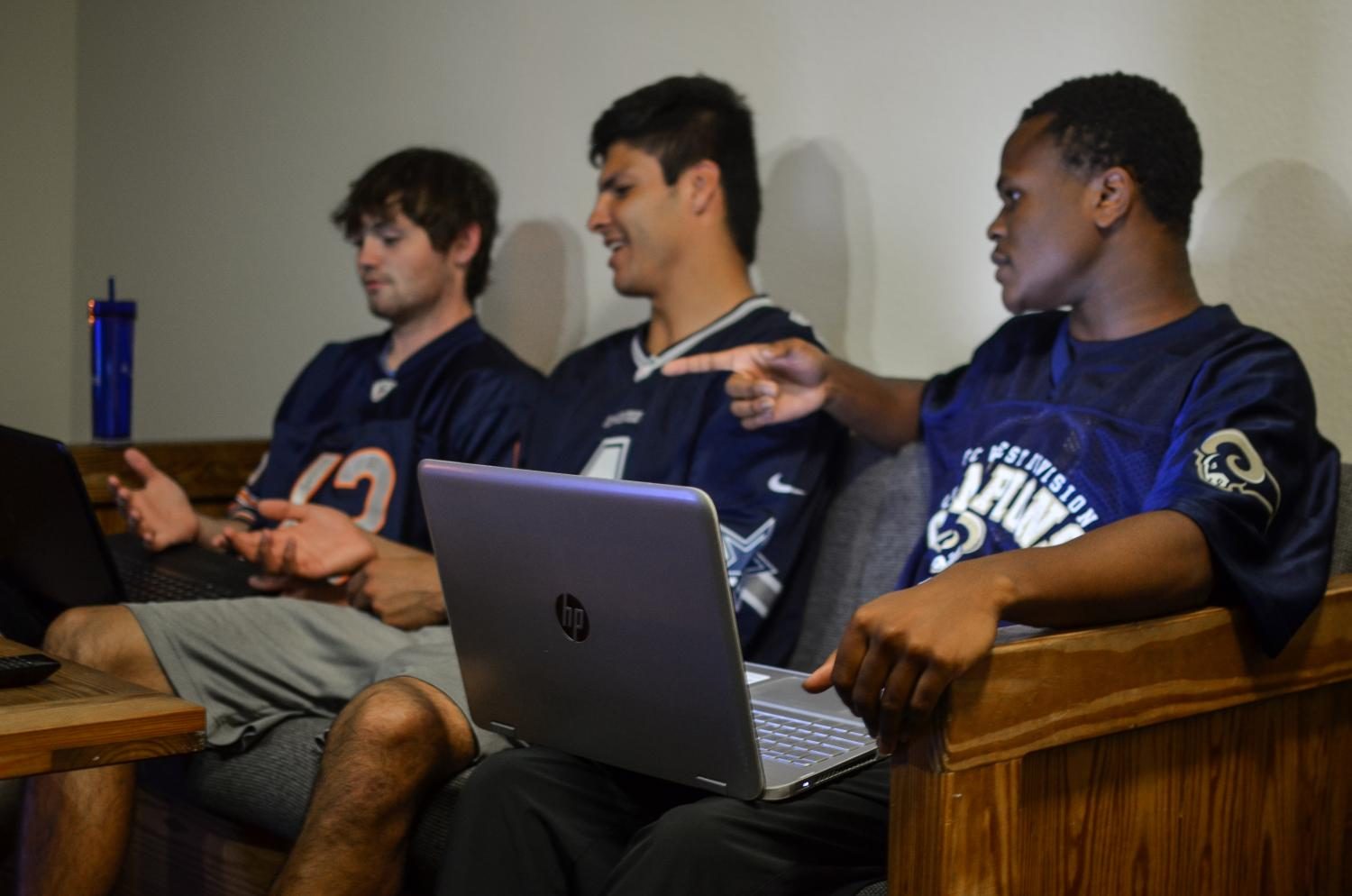 In the third inning of my intramural championship softball game Sunday night, the first base umpire turned to our first baseman and said the magic words.
In the third inning of my intramural championship softball game Sunday night, the first base umpire turned to our first baseman and said the magic words.
“Aaron Rodgers to Jordy Nelson for a 76-yard touchdown.”
Immediately, our first baseman turned to the outfield and, gloating, relayed the news to our centerfielder who groaned in disgust. But was one a Packers fan and the other a Vikings fan? Nope. The two were playing each other in fantasy football this week, and the first baseman had Jordy Nelson on his team.
Scenarios like this one are necessary realities of the 2013 NFL experience. According to the Fantasy Sports Trade Association, 33,559,990 people play fantasy sports in the United States in 2013. Of those, 69.4 percent said their favorite fantasy sport was football.
The magnitude of fantasy football cannot be denied. Heck, even my softball team, Team Priest, gets its name from one of the best fantasy football running backs of all time, Priest Holmes. But what effect does this fantasy obsession have on the way football fans watch games?
Personally, I find myself caring less about the outcomes of games than how players involved in my fantasy matchups perform. Sunday night, I watched the tail end of the Packers-Vikings game while flipping back-and-forth between game four of the World Series, even though the football game was very much in the bag for the Packers. I also had Nelson (and Vikings’ tight end Kyle Rudolph) starting for my fantasy football team, and trailed my roommate by only five points when I got home from my softball game.
In that way, playing fantasy football fundamentally altered my viewing choices as a sports fan. I love baseball, but the competition against my roommate drew me to watch a game that the Packers led by 17 in the fourth quarter. I cheer for the Packers in a matchup between those two teams, but would never watch that game instead of the World Series under normal circumstances. I felt selfish and dirty about it, but I had to know if Nelson would carry me to victory.
Many people, especially purist sports fans, would say fantasy football ruins the way people watch the nation’s most popular sport. Even the athletes themselves have offered opinions on the nationwide obsession.
New York Giants running back Brandon Jacobs said at least one person threatened to kill him if he didn’t play last Monday against the Vikings.
“That’s all people ever talk about,” Jacobs said. “You sit down at a restaurant to eat and people say, I have you on my fantasy team, you have to do something for me this week.”
Even the players feel the impacts of fans’ shuffled priorities.
Death threats aside, fantasy football enhances the way fans watch the NFL. Would I ordinarily have cared about a game between the Lions and Cowboys, despite the game’s exciting ending? Not really, no. But since Calvin Johnson was going for the second-best receiving game in NFL history, I wanted to see how many fantasy points he would score.
Not only does fantasy football make the NFL more interesting, it creates rivalries between my friends that wouldn’t normally be possible. Every time the Seahawks play the Packers from now until eternity, Green Bay fans will start whining about the Fail Mary and how bad of a person Golden Tate is. However, this feud only takes place about once every two seasons. With fantasy football, I can live these rivalries every time I play a cheesehead in my weekly matchup.
Ultimately, there’s no doubt fantasy football completely changed the way fans consume the NFL. But with all of the interest and good-natured rivalries fantasy football creates, it is undoubtedly good for fans and the game they love.


